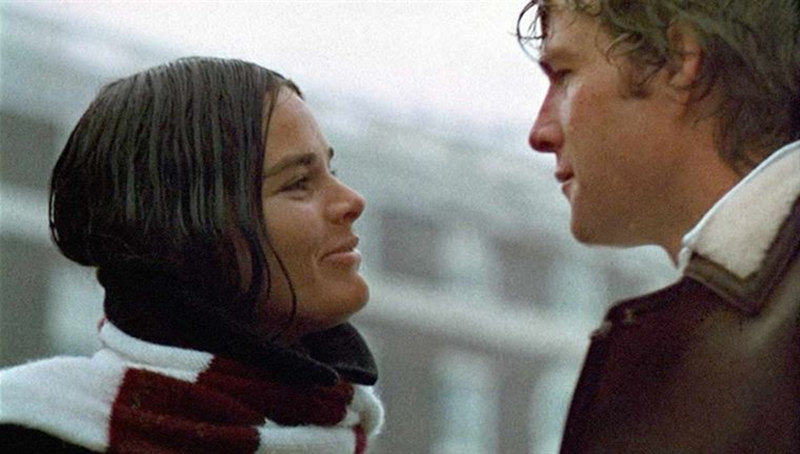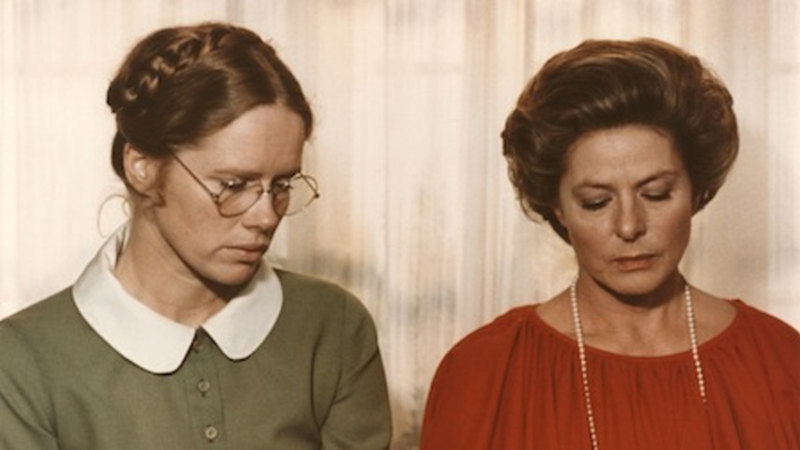You can cross another Best Picture off your Blu-ray want list. Sony is releasing “From Here to Eternity” in HD for the first time on October 1, and the 1953 military drama still holds up today. It also stands out—and not just because it won eight Oscars out of 13 nominations.
There are scores of war dramas and plenty of training films or films about life on the wartime home front. But there are far fewer films that deal with military life on a post. Based on the National Book Award-winning novel by James Jones, who witnessed the attack on Pearl Harbor, “From Here to Eternity” weaves together stories of two soldiers and their romantic exploits on a military base on Oahu just prior to the dramatic events of December 7, 1941. It’s a romantic drama, but as John J. Puccio perceptively pointed out in his DVD review, “it may be more of a guy’s idea of a romantic film than a woman’s.”
Watching it again after not seeing it for many years, I was also struck by how much of a debt novelist-screenwriter Donn Pearce (“Cool Hand Luke”) owes to Jones.
Just as “Cool Hand Luke” began with the introduction of “fresh meat” at a Florida road-gang prison, “From Here to Eternity” starts when a new man shows up at a base run by Capt. Dana Holmes (Philip Ober), a chronic philanderer whose wife is often seen on-base. His right-hand man is Sgt. Milton Warden (Burt Lancaster), who demands that the soft-spoken but defiant new guy explain his history. He left his last unit and accepted a demotion in rank because he’s the best bugler on the island and felt insulted that they promoted a new man to company bugler over him, he tells them. But he was also a boxer, and a darned good one, until he blinded a man in the ring and swore off boxing forever.
The captain, his unit’s boxing coach, says he pulled strings to have Robert E. Lee Prewitt (Montgomery Clift) transferred in, thinking he’d help them win a title. It’s when Prewitt refuses that the similarities to “Cool Hand Luke” start to surface. The captain sets out to break him, just as the “captain” does in Pearce’s prison drama. At one point, as happens with Luke, Prewitt is ordered to dig a hole late at night and then told to fill it up again. There’s also a major fight between Prewitt and another man, a knock-down, drag-out unofficial boxing match where Prewitt takes more of a beating because he’s trying to fight without striking any blows to the head—one which will be echoed in “Cool Hand Luke” with Luke’s feisty bout against the bigger and more punishing Dragline.
“From Here to Eternity” focuses on those main characters. When he’s not riding Prewitt, the captain goes off to have his affairs, but that leaves his sergeant to romance the captain’s wife (Debra Kerr). Prewitt, meanwhile, becomes friends with a cocky little soldier named Maggio (Frank Sinatra), who introduces him to a “friendship” club where he meets Lorene (Donna Reed), a woman with whom he falls instantly in love.
One of Jones’ fortes is blending main and minor characters to create a believable atmosphere in which the storylines feel more like real life. Part of the secret of the film’s success in that department lies with the casting of familiar faces in those minor roles, so they become more expansive. Oscar winner Ernest Borgnine plays the heavy in this film, a brutish sergeant nicknamed “Fatso,” but character actors Jack Warden, Mickey Shaughnessy, Claude Akins, and George Reeves (TV’s Superman) also turn up.
The writing is taut and utterly believable, and Daniel Taradash’s screenplay was among the Oscar winners. The film also won statues for Best Director (Fred Zinnemann), Best Editing (William A. Lyon), Best Sound (John P. Livadary), and Best B&W Cinematography (Burnett Guffey). All of the actors are solid, and everyone but Ober received nominations. Academy voters thought the standouts were Sinatra (Best Supporting Actor) and Reed (Best Supporting Actress), and I’d have to agree. Reed especially, cast against type, makes you forget all of the dreamy-eyed Capra-esque stories she starred in previously.
There’s also more edge to this film, with soap-opera plotting but not soap-opera stand-and-deliver monologues. “From Here to Eternity” remains a top-notch drama because of those strong characters, plotting, and dialogue. And yes, it’s engaging to see a drama about a part of military life that’s often ignored.
“From Here to Eternity” has a runtime of 118 minutes and is not rated. It would probably be PG by today’s standards.
Video:
“From Here to Eternity” is presented in the original Academy aspect ratio of 1.37:1 in black and white, transferred to a 50GB disc via an AVC/MPEG-4 encode. You’ll notice noise on backgrounds and flat planes in the middle distance, but for the most part the grain remains grain. No doubt Sony was worried about DNR phobes, because they made sure to leave plenty of filmic grain and the edges look untouched. I personally would have preferred a little more DNR, as I would have liked slightly stronger black levels to create stronger contrasts. But there’s no ghosting, no banding, and no compression issues.
Audio:
The featured audio is an English DTS-HD MA 5.1, which naturally separates and distributes the sound across the channels. There’s a pristine clarity to the audio that we don’t get with the grainy video. Additional audio options are in Dolby Digital Stereo for English, French, German, Italian, Japanese, Portuguese, and Spanish (both Castilian and Latin American). Subtitles are in English, English SDH, Arabic, Chinese (Manadarin trad.), Czech, Danish, Dutch, Finnish, French, German, Hebrew, Hindi, Hungarian, Italian, Japanese, Korean, Norwegian, Polish, Portuguese (Brazil), Portuguese (Portugal), Spanish (Castilian), Spanish (Latin American), Swedish, Thai, and Turkish.
Extras:
I’m happy to see a return to a picture-in-picture track, which studios seem to have abandoned or forgotten. The “Eternal History: Graphics-in-Picture Track” is a fun exercise in trivia because the film is strong enough that you don’t mind watching it again. It’s composed of some very cool clips, interviews, photos, and rare artifacts, and tells the story of the book-to-film transformation as well as casting and censorship struggles.
For the commentary track, director Fred Zinnemann’s son, Tim, teams with actor Alvin Sargent, who had an uncredited part in the film. It’s an average recounting of the film that probably could have been stronger had a Jones scholar been recruited. The remaining bonus features are “The Making of From Here to Eternity” and an excerpt from “Fred Zinnemann: As I See It.”
Bottom line:
Everyone knows the famous beach scene in “From Here to Eternity” where Burt Lancaster and Debra Kerr are kissing on the sand when a wave washes over them. But there are other scenes in this WWII-era film that are almost as iconic, and the 1953 Best Picture winner still packs a powerful punch today.


